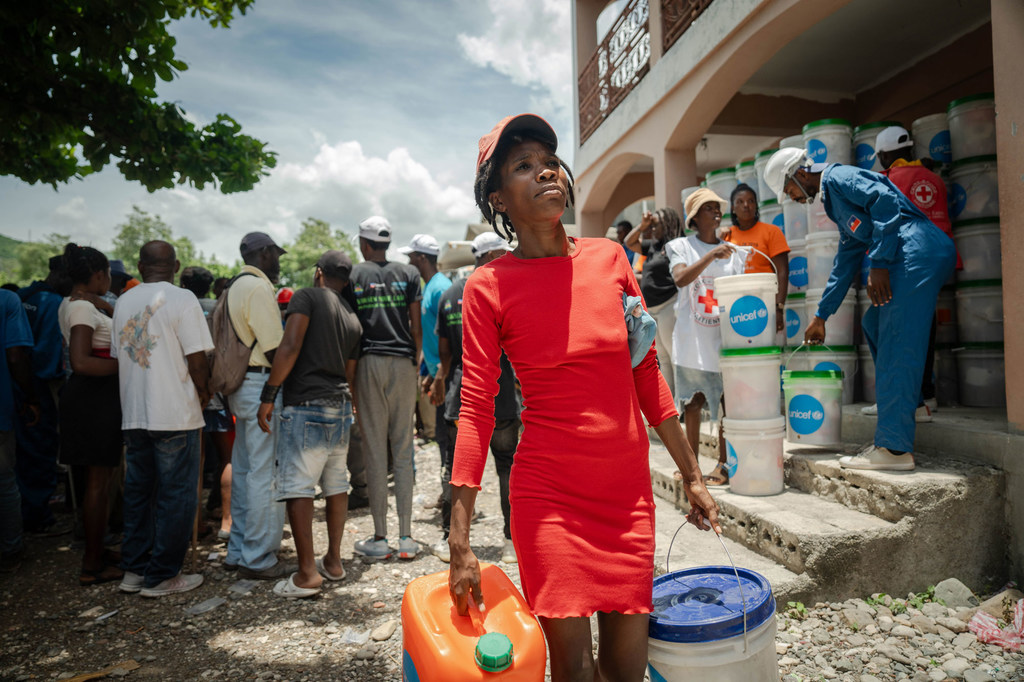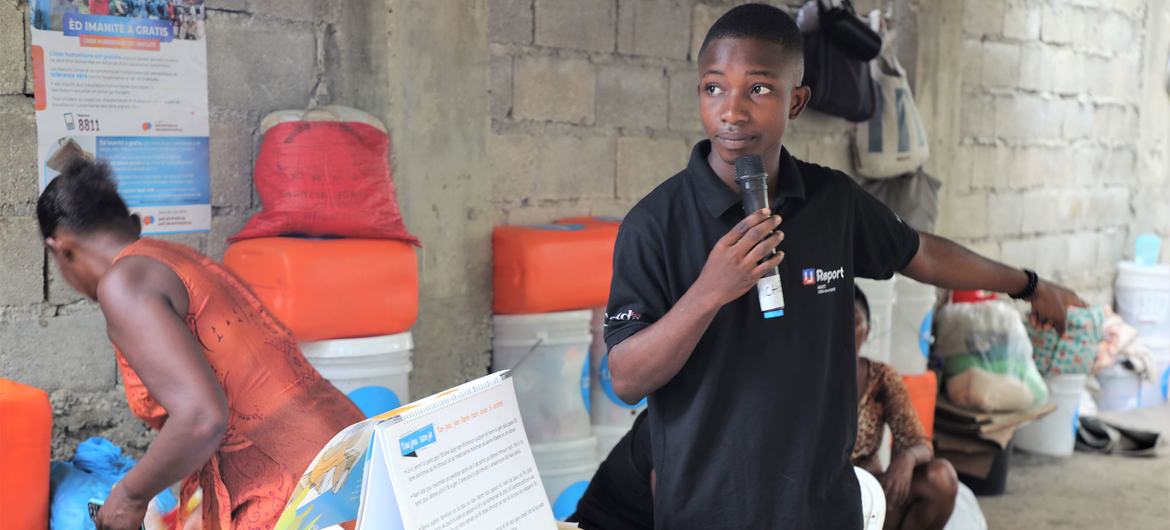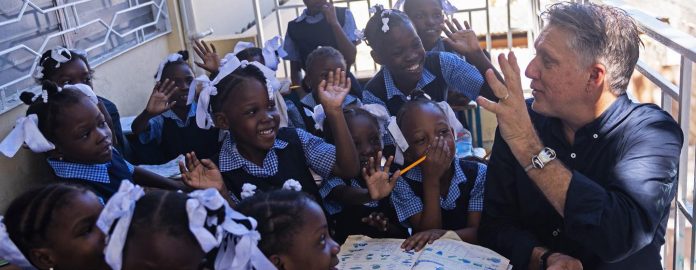The agency’s spokesperson James Elder has recently visited Port-au-Prince, the capital of the embattled Caribbean nation and has been sharing his experiences from the trip.
Staggering abuse and neglect
“There has been a staggering 1,000 per cent rise in sexual violence against children in Haiti, turning their bodies into battlegrounds. This tenfold increase, recorded from 2023 to last year, coincides with armed groups inflicting unimaginable horrors on children.
Equally staggering is the lack of coverage this horrific statistic has received. Perhaps by hearing the stories of the children living through this horror, we can truly understand the impact.
© UNOCHA/Giles Clarke
Gangs control the majority of the Haitian capital, Port-au-Prince.
Roseline* is 16 years old. Toward the end of last year, she was abducted by armed men while going to the shop from her friend’s house.
After being taken to a warehouse with other young girls, Roseline was subjected to extensive beatings, drugged, and repeatedly raped over what she believes was a month.
Upon realizing that there was no one to pay her ransom, the armed group released Roseline. She is currently residing in a UNICEF-supported safe house along with more than a dozen other girls, all receiving care.
Astounding insecurity
Armed groups now control 85% of Port-au-Prince. Yes, you read that correctly. 85% of Haiti’s capital is under the control of armed groups, a shocking level of insecurity for a city.
Just last year, child recruitment into armed groups increased by 70%. Currently, up to half of all armed group members are children, some as young as eight years old.
Many children are either forcefully taken or manipulated into joining these groups, fueled by extreme poverty. This results in a deadly cycle where children become victims of the same groups that cause their suffering.
In Haiti, around 1.2 million children live under constant threat from armed violence.
Collapse of essential services
Essential services in Haiti have collapsed, with overwhelmed hospitals and over half of the country’s health facilities lacking the necessary equipment and medications to treat children in emergencies.

© UNICEF/Maxime Le Lijour
A woman collects relief items distributed by UNICEF.
Playgrounds, schools, and homes have become battlegrounds, leading many families to flee. Over 500,000 children have been displaced, and an estimated three million will require urgent humanitarian assistance this year.
More than 300,000 children have had their education disrupted due to population displacement and school closures, with rampant sexual violence exacerbating the situation. An attack on a child is abhorrent, and a tenfold increase in such violence is devastating.
Engaging communities through young reporters
Despite the crisis, Haitians are resilient and refuse to give up.
Take, for example, UNICEF’s 135,000 “U-reporters” in Haiti. These young individuals embody the determination of ordinary Haitians, dedicating their energy to help those in need.

© UNICEF/Rachel Opota
A U-reporter gives a presentation on proper hygiene practices and cholera prevention.
U-Report is a digital platform created by UNICEF to involve communities, especially youth, in social issues.
In one month in 2024, efforts by U-reporters led to the identification and referral of cases of malnutrition, under-vaccination, and essential support for pregnant women in displaced sites and host communities.
Underfunded programs
The progress of Haiti begins with its children. With the help of incredible partners, UNICEF has established 32 mobile safe spaces, deployed over 380 health professionals, distributed cash to nearly 30,000 families, and treated over 80,000 children for malnutrition.
Programs that meet children’s needs can break the cycle of violence and reduce the risk of children becoming either perpetrators or victims of violence.
Despite these efforts, UNICEF Haiti’s emergency funding appeal in 2024 of $221.4 million was 72% underfunded.
This severe lack of funding contrasts starkly with the urgent need for education, protection, and development opportunities to prevent children from being drawn into violence. Without these efforts, violence will continue to affect future generations.






